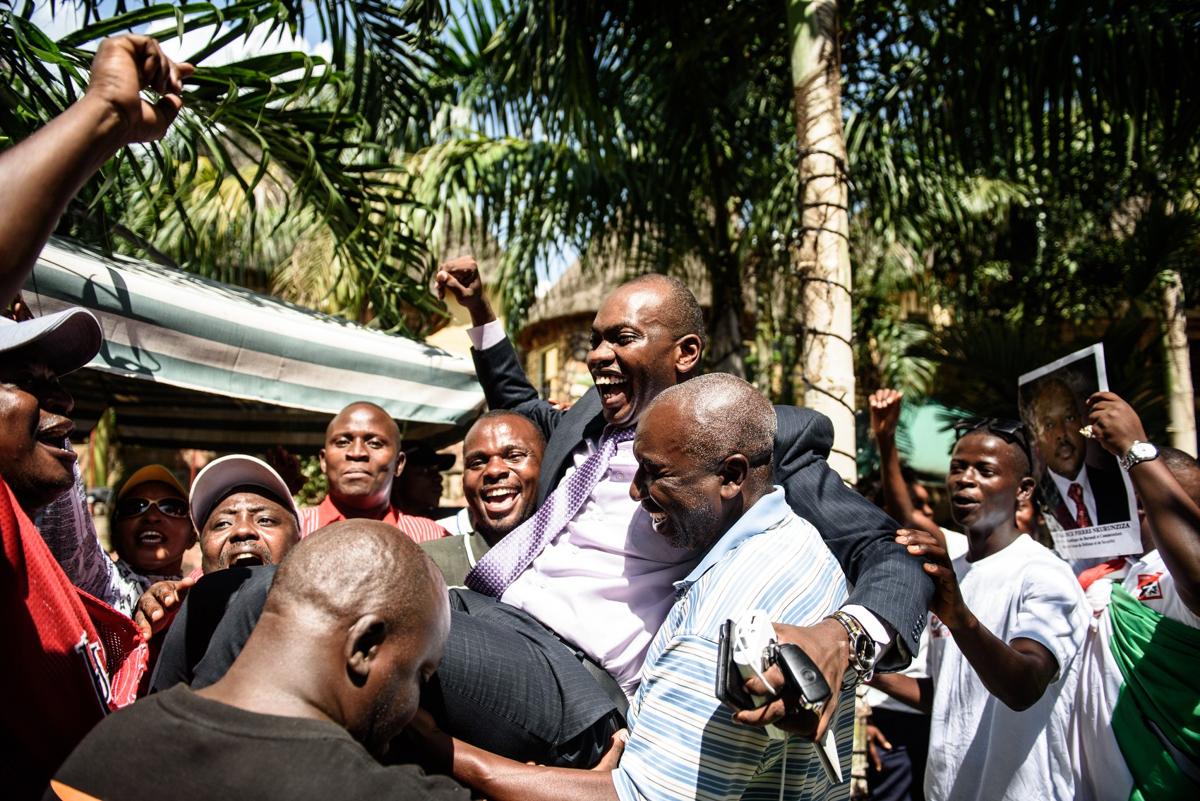




























They are coming in their thousands, a steady stream of men, women and children bearing what few possessions they can carry as they flee their native Burundi and the pro-government militias they fear are bent on death and destruction.
At Kagunga, a tiny fishing village on the shores of Lake Tanganyika just two kilometers inside Tanzania, an estimated 50,000 refugees are sleeping rough, waiting for a 100-year-old ferry, the MV Liemba, to carry them south to safety.
Conditions in the makeshift camp are dire, with families forced to sleep on the dirt, plastic sheets and tarpaulins providing their only protection from the elements. To eat, they cook meager rations on open fires.
The United Nations refugee agency (UNHCR) says more than 110,000 people have fled a political crisis that many fear could descend into another bout of ethnic bloodletting in the heart of Africa’s Great Lakes.
Most have gone south to Tanzania but 27,000 have sought safety to the north in Rwanda — which is still recovering from a 1994 genocide in which 800,000 ethnic Tutsis and moderate Hutus were killed — and 9,000 in Democratic Republic of Congo.
In Kagunga, seven people have died since the evacuees started arriving, the UNHCR said. After a failed coup last week, few expect the flow of people to slow.
Of the dead, two are suspected cholera victims while 300 others are suffering from acute diarrhea, the UNHCR said, suggesting the death toll could climb.
The ferry — first used by the German Imperial Navy to patrol Lake Tanganyika in 1915 — can carry 600 people but cannot dock at Kagunga, meaning passengers have to be carried out by fishing boat, a process that takes 10 hours.
The only other way out of the village is a four-hour trek to another village up through the jungle-clad cliffs abutting the lake, part of Africa’s Great Rift Valley.
“The situation is very difficult. We’ve stepped up efforts to move people away by trying to rehabilitate a mountain track so that at least they can walk out, but it’s a strenuous hike,” UNHCR spokeswoman Karin de Gruijl said.
‘We will finish them’
Over 2,000 people are arriving at Kagunga each day — more than the ferry can handle — and nearly all share one fear: youth militias known as Imbonerakure, loyal to President Pierre Nkurunziza, whose bid for a third term has triggered the crisis.
Just 10 years after the end of an ethnically charged civil war in which 300,000 people died, any muscle-flexing by the Imbonerakure, which in Kirundi means “Those who see far,” is enough to sow panic.
“The reason there are so many people here is because we didn’t feel secure back at home because Imbonerakure were going around threatening people and saying they were going to finish them,” one refugee, who did not want to be named, told Reuters. “This went on for a while. People were terrified and they were wondering what they meant when they said ‘We will finish them!’ And then things got worse because we heard about what was happening in the capital.”
In Rwanda’s refugee centers, some Tutsis said they had fled an expected backlash by Nkurunziza’s security forces after last week’s attempted coup by generals opposed to his plans to prolong his days in power.
“I heard that the coup had failed so I was afraid that the Imbonerakure could retaliate,” said Hakizimana Leonidas, a 46-year-old Tutsi who arrived in the Gashora refugee camp this weekend. “They tried a coup and it failed. I think its going to be worse for us who don’t want to see Nkurunziza run again.”
Others told a similar tale.
“I have a fiancee in Burundi but because of the terror by Imbonerakure I had to run away,” said 27-year-old Jean Berchimas Dukuzemungu, who said he was born of a Tutsi father and Hutu mother.
“When you are young and you’re not in their party, you are in danger.”


